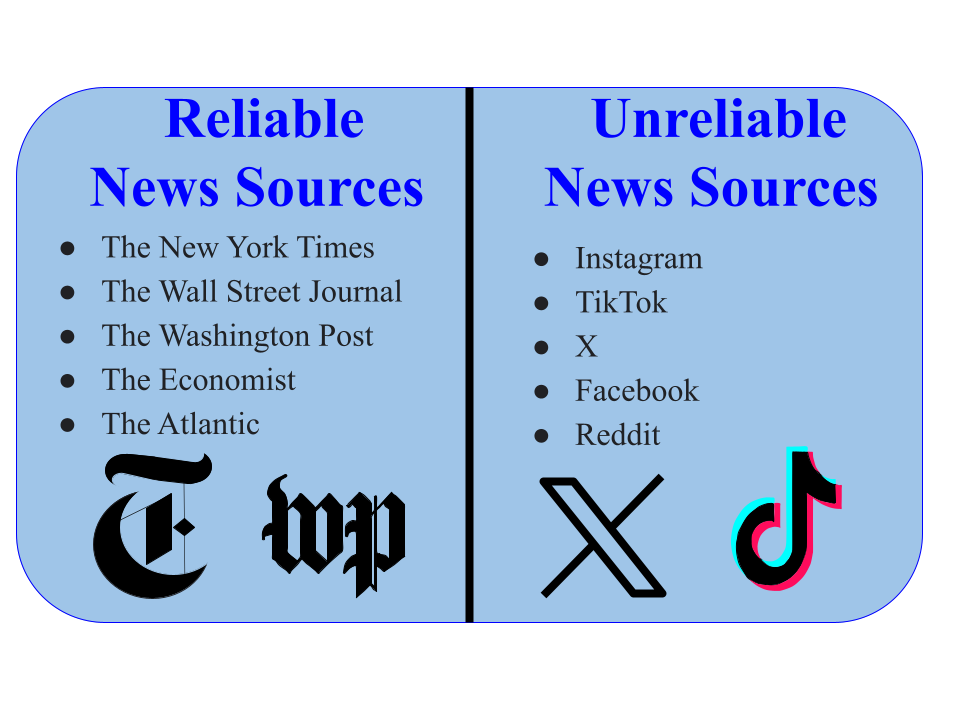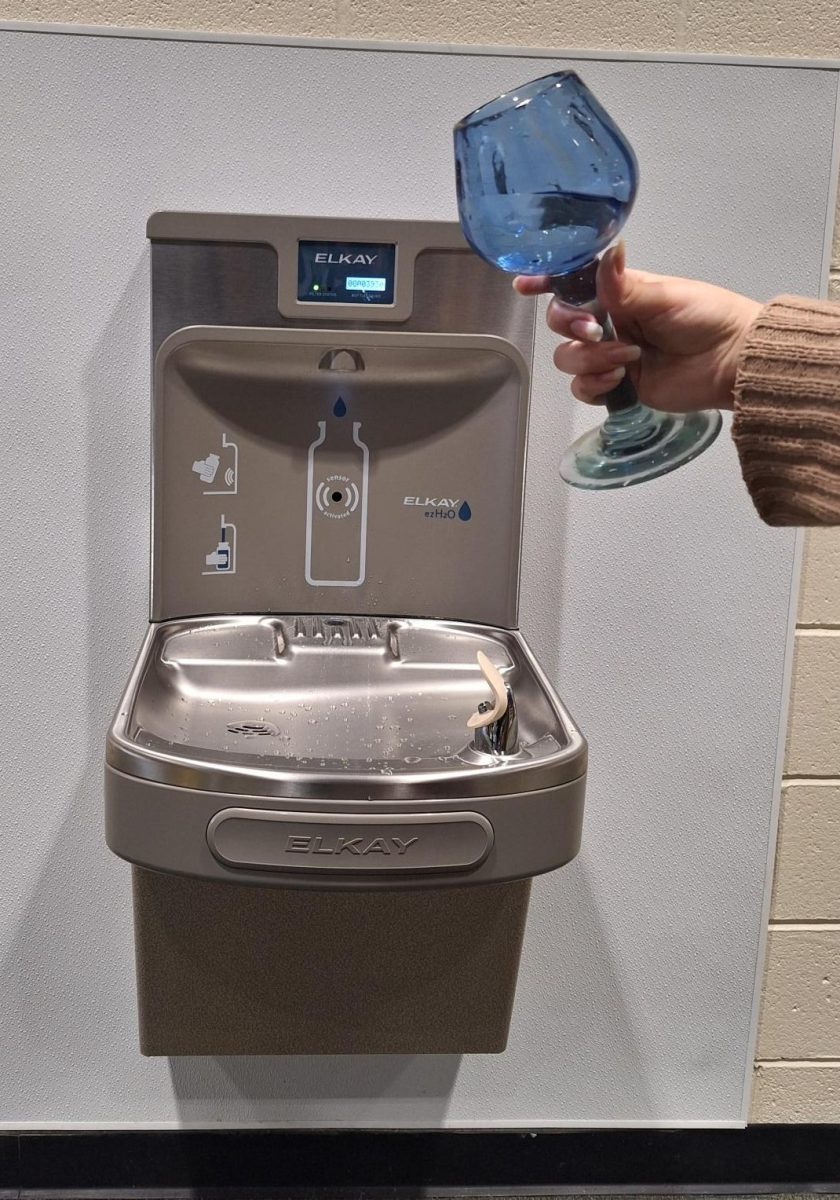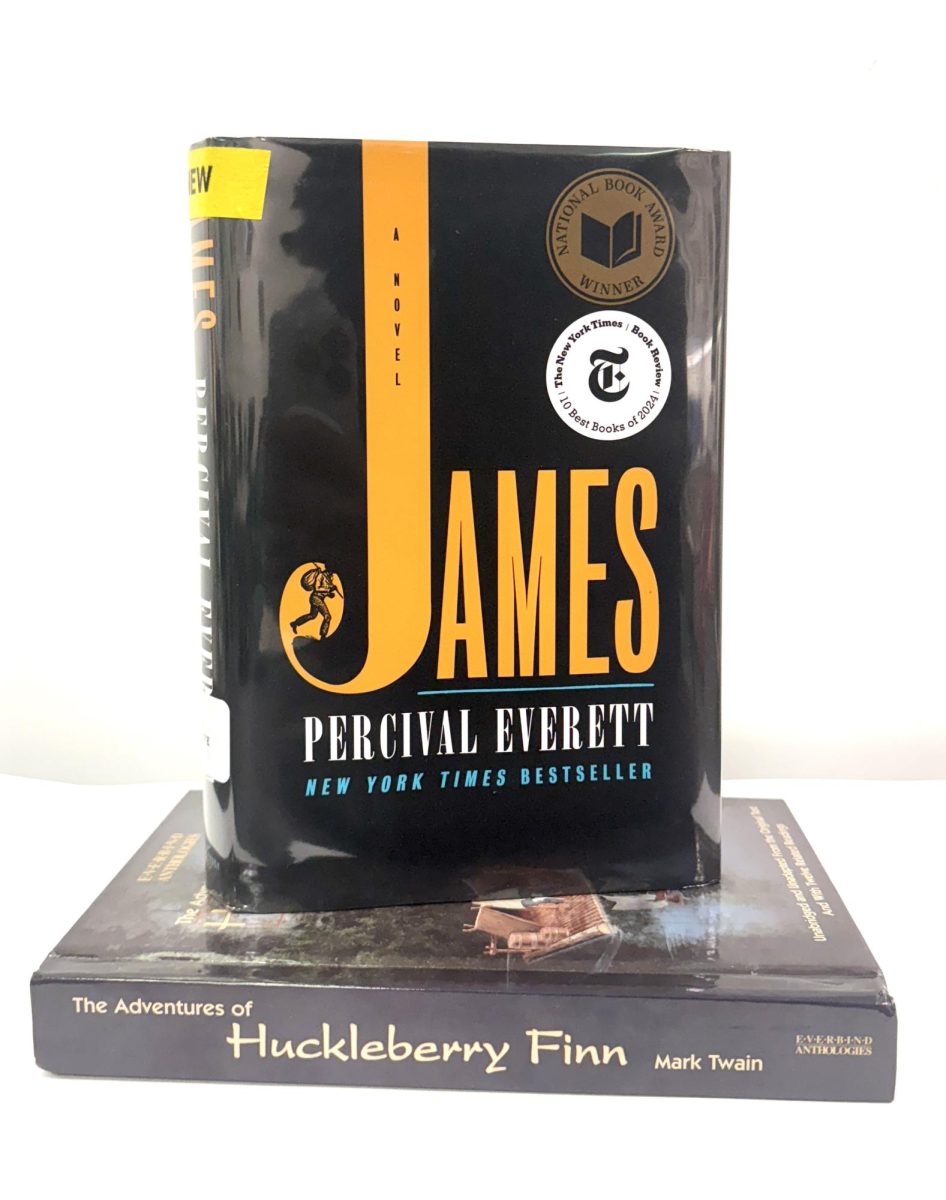During lunch, all the commons are filled with chatter about grades, upcoming tests and after school activities. But imagine if someone brings up a headline from the New York Times about the upcoming election in November. A friend with a confused look says, “Wait what?” After an awkward pause, another friend shouts, “Oh, that! Yeah, I saw it on TikTok or Instagram.”
The reason the friend replied with that answer is because social media like TikTok or Instagram is quick, and easy to use. “Young people are invested in many things so they don’t have as much time to listen to the news,” said Media Center specialist Ms. Mary Desmond. “Instead, they’re going for convenient sources like social media platforms for their information.”
While getting news from social media is accessible, it can be problematic. “Social media is often biased, and when you start listening to skewed media, you will ignore sources that give you the bigger picture of what’s happening,” said Vrinda Chandnani (‘26).
“Social media has changed the way people receive and perceive news, because these platforms give you one fraction of a whole story,” said Ms. Desmond. “You should be open to listening to different viewpoints, because we can’t just live in a little box and not hear different perspectives. Then you can decide what you believe is the truth.”
The best way we can get to the truth and facts is by turning to the work of journalism. Unlike the commentary on social media, good journalists are directly responsible for distributing information to the general public.
“Journalists have had a really important job throughout society because it’s their job to report news in an unbiased way,” said Ms. Desmond. Journalists are also actively recording history and writing the first draft of it, according to Washington Post owner Philip Graham. He used this motto in 1963 to argue that fact-based news is essential for the way we view history.
But fact and bias checks do not always happen in the digital world. “The rise of social media has made it far easier for fake news to spread rapidly,” said Sana Manchanda (‘25). “In comparison, journalism ensures that our citizens are accurately informed about not just current events, but policies, and the actions of those in power.”
By keeping an eye on those in positions of power, journalism holds them accountable. The government’s power is divided into three branches: legislative, executive, and judicial. The power and influence of journalism is why it is referred to as the Fourth Estate.
In 1841, essayist Thomas Carlyle coined the term after citing a quote by British politician Edmund Burke. According to the Marriam-Webster Dictionary, the term “estate” in the metaphor was derived from the old medieval European term for branches in government. The metaphor has since been applied to the news media for their role in checking the power of the other three branches.
This critical role of the press is becoming increasingly ignored among my peers. According to a study by Brooke Auxier of the Wall Street Journal in 2022, 51% of those aged 14-19 use social media as their source of news information. The reasoning was that social media was more “immediate, interactive, and engaging” than traditional news.
But engaging content and facts often collide. “Social media has made it easy for fake news to spread rapidly especially because outlets often prioritize stories that will generate high engagement,” said Manchanda. With more misinformation, it is easy to have incorrect information about the actions of those in power, and that makes it more difficult to hold people in power accountable for their abuses.
“If people only get one side of the story, or if they’re unfortunately getting lies, it’s going to influence what people think and how they act about the government in our democracy,” said Ms. Desmond.
In comparison to social media, a reputable press represents the full story, allowing people to have a better understanding of a topic.
“When you shift away from reading journalistic articles, what happens in our democracy is that you won’t be guided by your beliefs,” said Chandnani. “But with journalism, reputable sources will give you the whole picture and are not as polarizing or influencing as social media.”
This allows people to form well-rounded, educated opinions. Relying on information from credible news sources can be more impactful than one may realize in their youth.
“The truth is, information is power – you need to have real, unbiased information to move forward in society,” said Ms. Desmond. “The beauty of democracy is having a say, and be careful, because it can change in an instant. So don’t let anyone choose your thoughts for you.”







